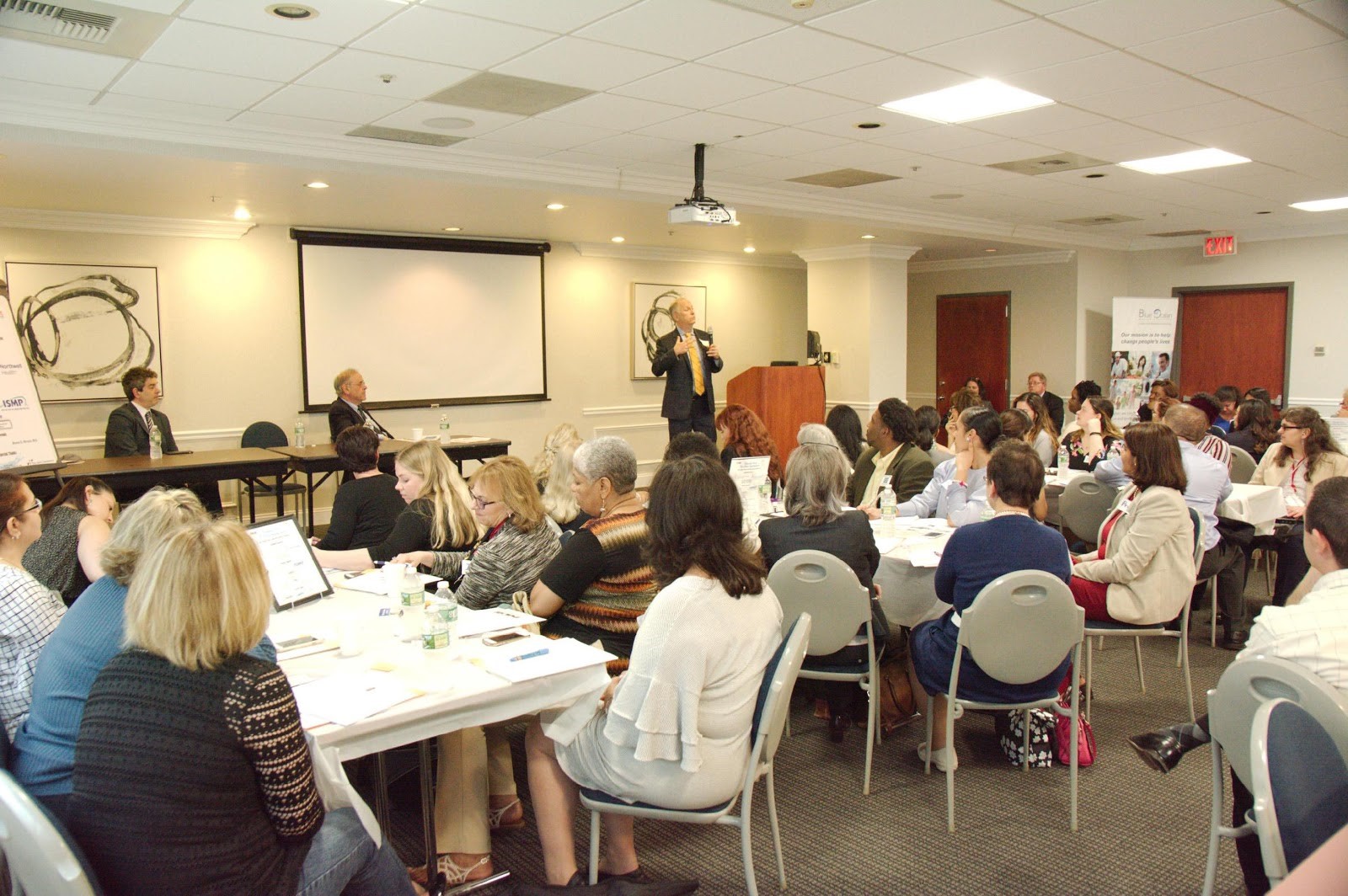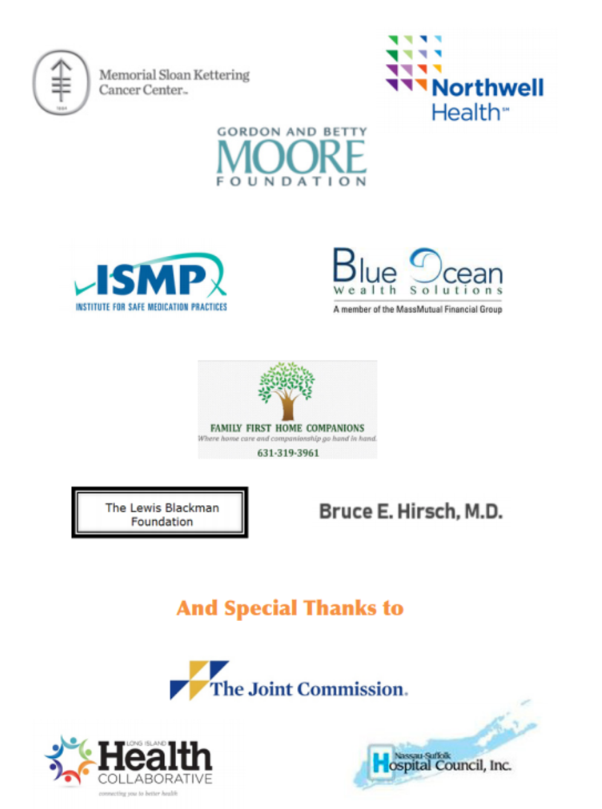Summary Report
Pulse Center for Patient Safety, Education and Advocacy
2018 Patient Safety Spring Symposium

On May 4, 2018, Pulse Center for Patient Safety, Education and Advocacy held its annual Spring Symposium in Hauppauge, NY.
The Symposium, chaired by Robin Moulder, RN, MBA, CPHQ, Manager, Division of Quality & Safety, Memorial Sloan Kettering, launched a unique experiment in Patient Safety education on Long Island. Delegates from a range of Long Island-based nonprofit organizations collaborated with four subject matter experts in Patient Safety to learn, exchange experiences of their members and strategize ways to increase awareness of Patient Safety issues in their communities.
The Subject Matter Experts shared information on the following:
Safely Navigating the Healthcare System
Edward Pollak, MD, Medical Director and Patient Safety Officer, Division of Healthcare Improvement, The Joint Commission
Medication Safety
Michael Cohen, RPh, MS, ScD, DPS (hon), President, Institute for Safe Medication Practices (ISMP)
Turning the Patient Safety Experience into Evidence
Anthony Santella, DrPH, MPH, Associate Professor of Public Health and LGBTQ+ Studies, Hofstra University
Listening to the Body: Communication and Medical Diagnosis
Bruce Hirsch, MD, FACP, AAHIVS, Attending Physician, Division of Infectious Diseases, Northshore University Hospital
23 organizations — Adelphi NY Statewide Breast Cancer Hotline and Support Program, the Curvy Girl Foundation, EOC of Suffolk, Options for Community Living, Suffolk Independent Living Organization and 18 others — attended the event hosted by Nassau Suffolk Hospital Council in Hauppauge, NY with prime sponsorship coming from Memorial Sloan Kettering Cancer Center and Northwell Health.
Symposium attendance qualified the nonprofit groups to apply to the Patient Safety Education Fund, organized by Pulse with aid from major sponsors, for small grants to help them spread the Patient Safety message on Long Island.
The audience broke out into four group sessions with the subject matter experts and were able to explore how those topics applied to their respective communities and activities. Participants took full advantage of this opportunity to interact with experts and peers from other organizations. Lively discussions ensued and many questions were raised and answered.
In Dr. Hirsch’s group, for example, one delegate asked, “Has anyone found role-play effective as a training mechanism dealing with health care challenges?” Hirsch and others replied that it has been found very useful when dealing with families and loved ones and it is an effective way to explore different situations. Further, it helps improve communication skills. Role-play is a key part of Pulse’s own training courses.
A member of Michael Cohen’s group on Medication Safety asked how medicines could be made safer for patients with limited English proficiency. Suggestions included multilingual labeling or at least ensuring that English, if used, is simple enough for most people to understand. Other suggestions included the use of universally understood icons and color-coding.
The “hand-off” or transitions of care (for example a hospital discharge to a rehab facility) was an issue discussed in Dr. Pollak’s group on Navigating the Healthcare System. A participant asked why such transfers often raise problems in patient safety, and what could be done about it. Pollak and others responded that improving patients’ health literacy practitioners’ communication skills who often give confusing or unclear instructions would be of great benefit. Also noted was the need for greater communication between healthcare providers, to avoid situations such as “therapeutic duplication” of medications or treatments.
Dr. Santella’s group focused on practical research and surveys. One participant asked, “What methods or tools work best in eliciting responses from a survey?” Dr. Santella recommended, “You should consider not writing your own questions from scratch, but model them on publically available questions that have already proven effective in other research projects.”
A New Model
According to Pulse CPSEA president Ilene Corina, “Our 2018 Symposium opened a new way to engage communities in the effort to improve healthcare outcomes. We believe that by offering organizations and individuals the chance to talk directly with nationally recognized leaders in Patient Safety — and potentially to receive financial support — we can multiply our effort to spread Patient Safety education throughout our region and beyond. This is a model that can work anywhere in the country or the world.”
Participants seemed to agree. Responses from those attending included:
“Thank you so much for arranging this wonderful, informative seminar!”
“I’m eager to take the info back to my agency.”
“Wonderful program. All participants were passionate.”
Corina notes, “This innovative event would not have been possible without the support of our sponsors, especially our “Diamond” level sponsors: Memorial Sloan Kettering Cancer Center, Northwell Health and the Gordon and Betty Moore Foundation.
Other sponsors included the Institute for Safe Medication Practices, Blue Ocean Wealth Solutions, The Lewis Blackman Foundation, Family First Home Companions and Bruce E. Hirsch, M.D.
Thank You to Our Sponsors!

